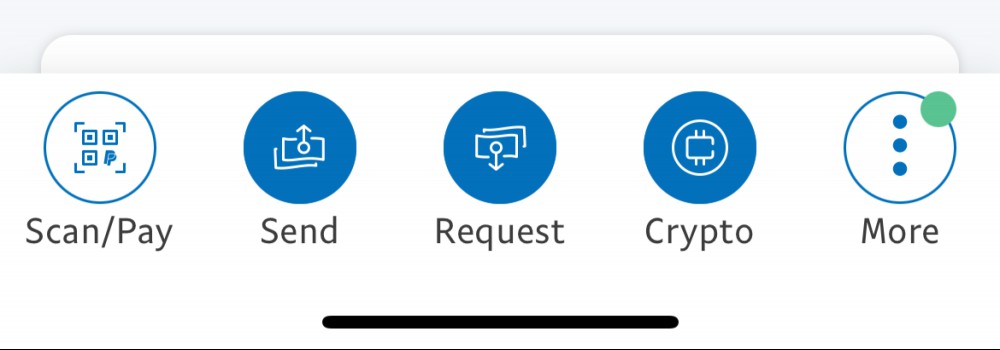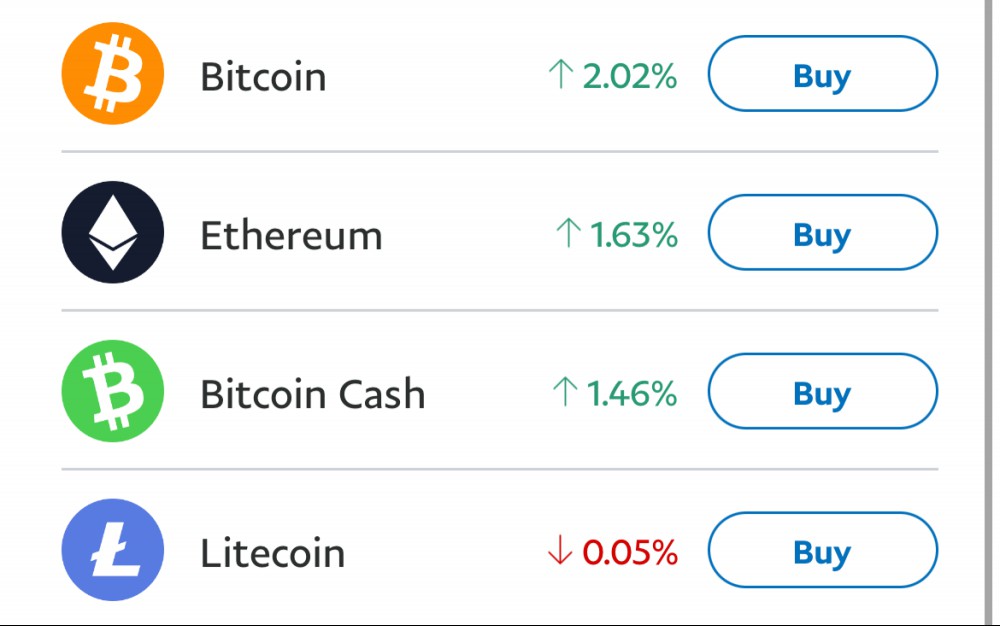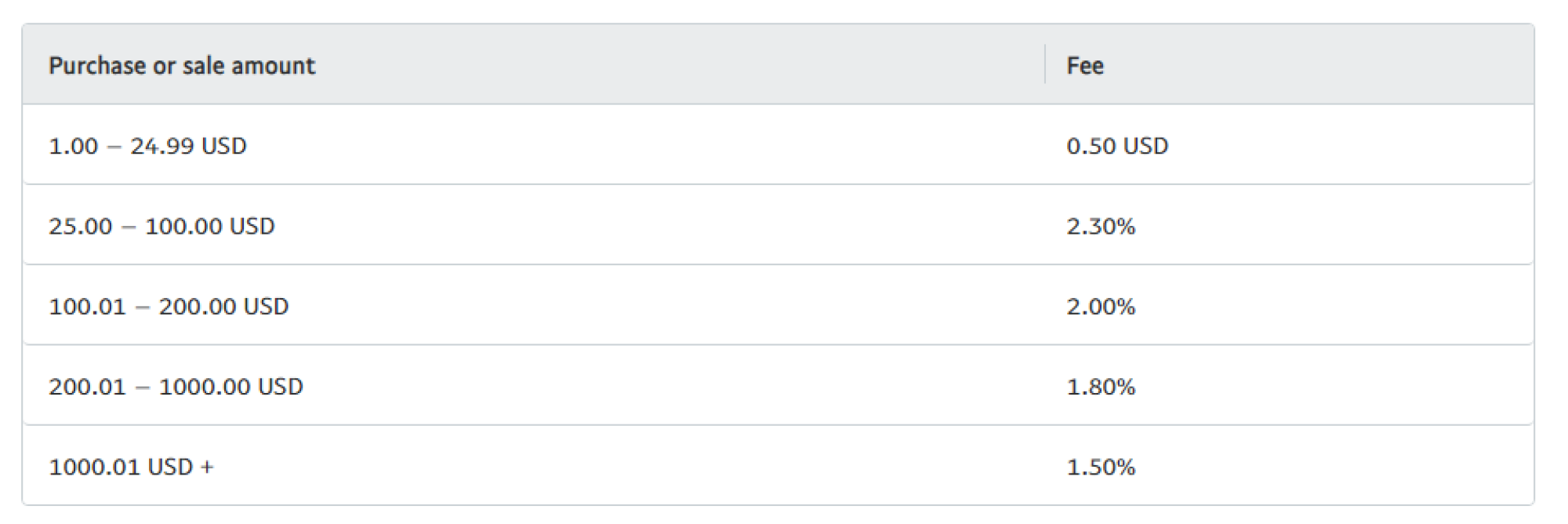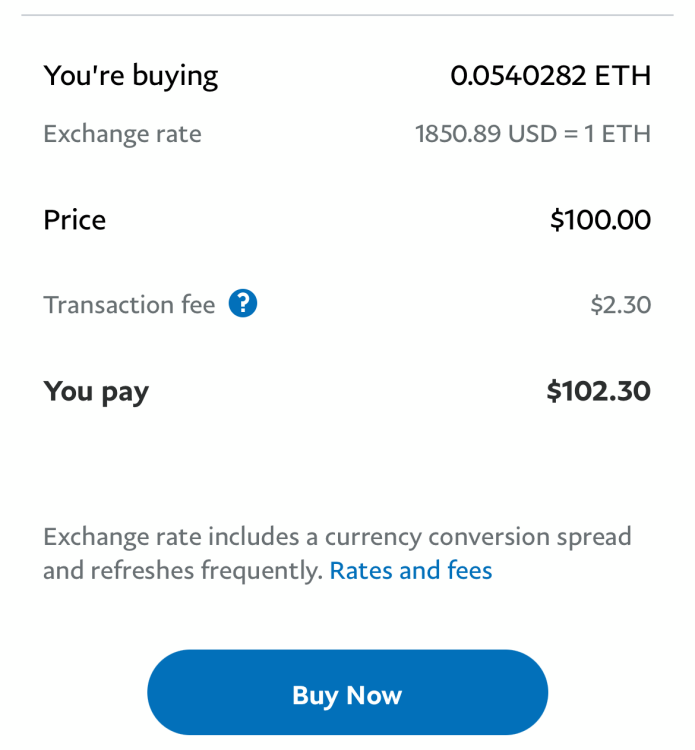How to Use Social Media to Register to Vote
The 2020 presidential election is November 3, meaning the clock is ticking for voters who need to complete or update their registration. The good news

Whether you’re looking to make a larger investment or you just want to dabble in cryptocurrencies, you can purchase Bitcoin, Ethereum, Bitcoin Cash, and Litecoin through PayPal. And, soon, you’ll be able to pay various merchants using your cryptocurrency stash—which PayPal will automatically convert into dollars for you at the point of purchase.
This “Checkout with Crypto” feature is new, but amassing your cryptocurrency horde on PayPal has been a possibility since November of last year. PayPal makes it painfully easy to buy cryptocurrency on its service, but there are a few caveats you’ll want to consider before you start using it to facilitate all of your transactions.
First, let’s go over the basics: Make sure you’re using the most up-to-date version of PayPal’s mobile app or, if you prefer to use your browser, simply hit up PayPal’s website. In either, you’ll see a big button that says “Crypto” on it. Click or tap on that.

You’ll have to accept a PayPal policy to start engaging in cryptocurrency trades, but you won’t have to do anything drastic like submitting a photo of your driver’s license. In fact, PayPal’s process gets you into purchasing in less than a minute. It’s that quick.

PayPal only offers four cryptocurrencies for purchase, as noted. And you’ll be subject to a transaction fee that varies by how much cryptocurrency you’re buying every time you make a purchase:

You’ll also be charged a cryptocurrency “spread,” as PayPal describes:
“PayPal makes money when you buy and sell Crypto Assets. PayPal will charge a spread (or margin) between the market price we receive from our trading Service Provider and the exchange rate between USD and Crypto Assets displayed to you. PayPal charges a spread on every Crypto Asset transaction, including sales to Checkout with Crypto. The amount that PayPal makes and the exchange rate provided may be different than what you would pay on other cryptocurrency platforms. You will also be charged a fee when you buy or sell Crypto Assets. More information on pricing and fees can be found on the PayPal Fees page, the PayPal Cash Long Form Disclosure and the PayPal Cash Plus Long Form Disclosure. PayPal does not charge a fee to sell Crypto Assets when you Checkout with Crypto.”
You’ll see an estimate of these fees before you make a purchase, so you should have a pretty good idea of how much real-world money you’ll be spending.

The biggest quick of PayPal’s seemingly easy implementation is that once completed, your cryptocurrency purchases are locked into its system. You can’t transfer your assets to another service or wallet (or import any more in), nor is there any other protection you can use (like a private key) to gain access to your cryptocurrency in the event you run into problems with PayPal. You can’t even pay your friends in cryptocurrency, just supported merchants.
Everything you do is tied directly to your PayPal account, which means you’ll want to have strong security in place (including two-factor authentication) to protect your investment. And you’ll want to make sure that you never do anything on PayPal that runs afoul of its policies. I’m not sure what happens to your cryptocurrency if that happens, but that’s not really an issue you’d encounter on a service that only facilitates cryptocurrency buying and selling.
In other words, you’re getting the convenience of PayPal, but you’re also stuck with PayPal if you go this route to buy your Bitcoins (or whatever). Honestly, if you’re looking to seriously get into cryptocurrency, you might consider a different provider entirely—especially one that grants you the ability to buy and sell a much larger list of cryptocurrencies. PayPal’s version is kind of like the Robinhood of crypto, only easier. Use it to get your feet wet, sure, but you’ll want to move on to something a little more advanced as soon as you can. And that’ll mean liquidating your PayPal assets; here’s hoping you catch your favorite cryptocurrency on an upswing.

The 2020 presidential election is November 3, meaning the clock is ticking for voters who need to complete or update their registration. The good news

Fall hardware announcement season continues. Google is on tap today; its fancy “Launch Night” event kicks off in just a few hours. As for what the com

If you’ve been longing for a Dick Tracy-like setup for using Spotify on your Apple Watch, you won’t have to wait much longer. A new update to the app

Google has added a helpful “About this result” menu for its search results. The new menu includes contextual information that you can use to check if

Say it ain’t so, Calibri. I’ve always favored Microsoft’s default Word font—much more so than Times New Roman, at least, which Microsoft replaced with

Usually, it’s not easy to install spyware on smartphones and tablets, and especially on the iPhone or iPad. But Pegasus spyware is an exception. In Ju

The shift was already happening, but after a year and a half of remote work during the pandemic, Slack has become the de facto business messaging app.

When people (usually on the internet) start start fighting a new front in the iPhone versus Android wars, the latter seemingly always has a trump card
We are a comprehensive and trusted information platform dedicated to delivering high-quality content across a wide range of topics, including society, technology, business, health, culture, and entertainment.
From breaking news to in-depth reports, we adhere to the principles of accuracy and diverse perspectives, helping readers find clarity and reliability in today’s fast-paced information landscape.
Our goal is to be a dependable source of knowledge for every reader—making information not only accessible but truly trustworthy. Looking ahead, we will continue to enhance our content and services, connecting the world and delivering value.